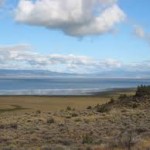 During the 1870s, the federal government adopted policies encouraging the killing of the North American buffalo in order to deplete the food source of the Native Americans, a tactic used to expand the government’s authority across the West.
During the 1870s, the federal government adopted policies encouraging the killing of the North American buffalo in order to deplete the food source of the Native Americans, a tactic used to expand the government’s authority across the West.The Bureau of Land Mismanagement
 During the 1870s, the federal government adopted policies encouraging the killing of the North American buffalo in order to deplete the food source of the Native Americans, a tactic used to expand the government’s authority across the West.
During the 1870s, the federal government adopted policies encouraging the killing of the North American buffalo in order to deplete the food source of the Native Americans, a tactic used to expand the government’s authority across the West.